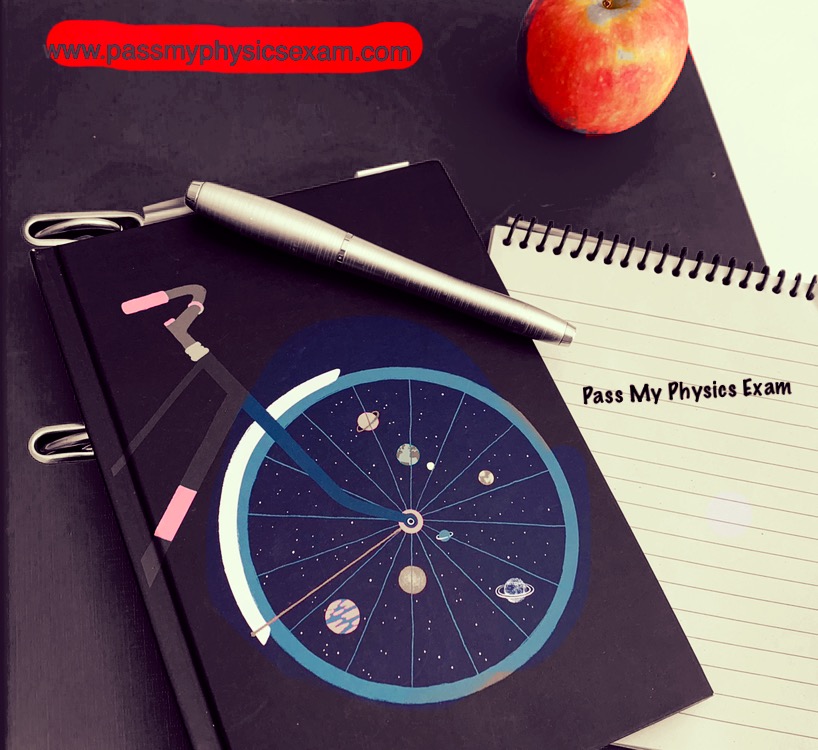Image by NASA-Imagery from Pixabay
It’s the final term of Year 9 and if you are in Year 9 right now, there is a good chance that your school is starting to cover your GCSE Physics topics with you.
Whether you are taking the combined or single science option, you will have to learn the Physics element of science for your GCSE.
Many students struggle to find where the interesting stuff is in their Physics course. Well, did you know that the word Physics actually comes from the root words for nature?
Physics is life!
I understand that the topics are more difficult to relate to and I also know that there is an element of maths as well as the need to understand the actual science concepts and language. I get it! But if you can keep a cool head and look for where Physics is happening all around you, then you really don’t need to fear Physics.
If you want to get a really good start on your GCSE why not sign up here for my Start September Strong challenge!
What have you already covered at KS3 that you will build on starting GCSE Physics?
There are three major topics in Physics and you will have met all of them already. The topics are:
Energy
- Stores, sources and uses.
- Thermal (heat) energy and kinetic theory.
- The Electromagnetic Spectrum (light)
- Waves (light and sound)
- Electrical circuits, transformers and the National Grid
Matter
- Mass
- Particle model of matter
- Atomic structure (isotopes and radioactivity)
Forces
- Motion (balanced and unbalanced forces)
- Pressure
- Momentum
- Magnetism and Electromagnetism
You will also learn how aspects of these topics fit into medical science, astrophysics and technology. The history of how our understanding of atoms is also covered, as is the development of certain medical techniques such as X-Rays and MRI scans.
The great thing about Physics is that these topics all link together. Because the universe is made from matter, and because energy gives matter the ability to do work, these are linked. Also, energy works with forces because forces need energy and they also cause energy to be transferred. So these fundamental ideas are central to your learning.
It is easy to forget how these all link together from lesson to lesson. You might begin by learning about thermal energy and then find yourself learning about light or renewable energy sources. Keep in mind that whatever you are learning it will fall into one of the three categories.
What you need to know for the exam:
What you need to know starting GCSE Physics is this: whether you are taking GCSE Science or GCSE Physics you will take two exam papers. The difference is that for Physics there will be extra topics covered in the exam and the exam will be longer.
You will be expected to learn a certain number of mathematical formulas. These will not be provided in the exam but most of them only contain three variables and if you can work with a formula triangle or remember how to rearrange a three part formula then you only have to remember which variable goes where!
The practical element of the exam will require you to either plan an investigation or discuss the findings from an example of an investigation. You will have met all of these practicals as you progress through the course.
Hints and tips:
- You will need to recall the three graphs for electrical resistance as well as be able to discuss two others for LDRs and thermistors.
- You will be expected to interpret a graph for calculating the half-life of radioactive substances.
- Diagrams make things so much easier and you don’t have to be Picasso! If you can draw a circle or a square to represent an object, then you can use this to help to solve problems such as force diagrams and energy transfers.
- Write all of your numbers down, even if you get the wrong answer you can be awarded marks for your method in working it out!
- Units! Units are another thing you will have to remember for the exam. They are often worth a mark, so they are easy ways to increase your score and push you into the next grade boundary!
On long answer questions: There is also an element of extended writing which will contribute to your SPG grade. These longer answer questions are usually awarded 6 marks and are evaluated on a basis of three tiers of content.
- Common questions often cover advantages/disadvantage discussions for example two types of electricity production. You may be asked to explain how a transformer works or use a little bit of maths to work out the value of something in order to compare it with another, for example U-Values or perhaps a discussion of power losses in cables.
- Bullet points are absolutely allowed as long as each bullet point is a complete sentence and relevant to the answer.
Final words…
I once knew a Chemistry teacher who always said “Physics is the work of magicians and pixies.” The best advice I can give you is to start Physics course with an open mind and a sense of wonder, and you will be amazed at the magic that can be found!
Remember: If you want to get a really good start on your GCSE why not sign up here for my Start September Strong challenge!
Or join the FREE Facebook group: https://www.facebook.com/groups/433760797219967
Resources for this topic:
BBC Bitesize has a wonderful catalogue of resources to help you to revise and review your work. There are videos, quizzes and summaries here: www.bbc.co.uk/bitesize/secondary
Past papers can be found at the main exam board websites and also here: https://revisionscience.com/gcse-revision/physics/physics-gcse-past-papers


